Hawkins Webinars: The International Series
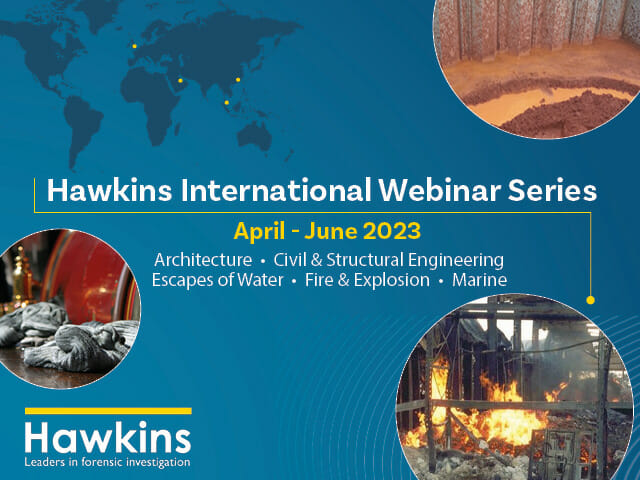
For our second series of webinars in 2023, our Dubai, Hong Kong and Singapore offices have teamed up to create a series covering some of Hawkins’ expertise in the built environment, and marine sectors as well as topics involving fires and escapes of water. Read a summary of each webinar and register below. CLICK HERE TO REGISTER Moisture Issues in Buildings Presented by Austen Smith Thursday 6th April 2023 at 9.00am BST Austen will cover the issues and impact during construction and post-occupancy, and how moisture in building materials and the local environment can impact the fabric of buildings in hot climates. Escape of Water: Really a Materials Problem? Presented by Chun Chan Thursday 20th April 2023 at 9.00am BST Chun will discuss how the fault is often placed on a defective component when an escape of water occurs, and how Hawkins investigates other potential causes to identify the real issue. The Perennial Problem of Bulk Cargo Liquefaction Presented by Nico Zurcher Thursday 4th May 2023 at 9.00am BST Nico’s presentation will answer the following questions: What is liquefaction? Which cargoes pose a risk when carried? How can that risk be mitigated? Should a Building be Demolished Following a […]
Stewart Horan
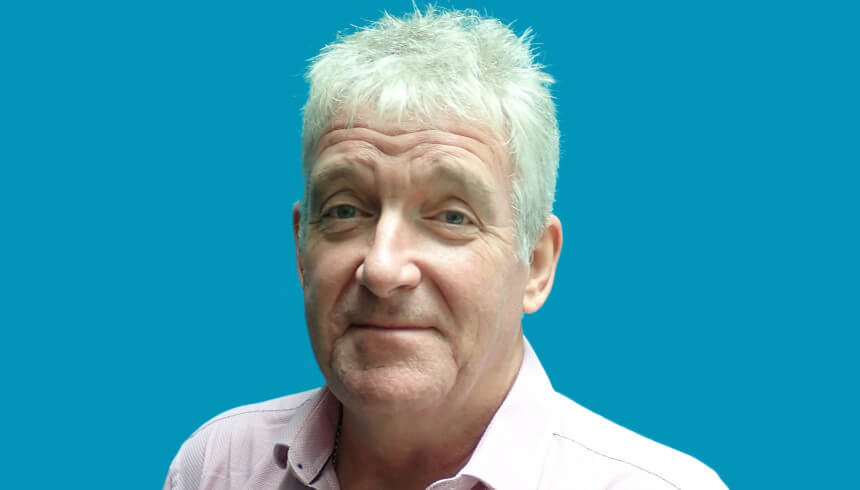
Stewart joined Hawkins as a Marine Consultant in 2023 having previously worked for another consultancy since 1999. During this period, he attended incidents and provided advice on a wide range of marine matters involving liquid and bulk cargoes, bunkers, container vessels, oil and chemical tankers, and bulk carriers.
Hawkins Welcomes Marine Consultant Captain Stewart Horan
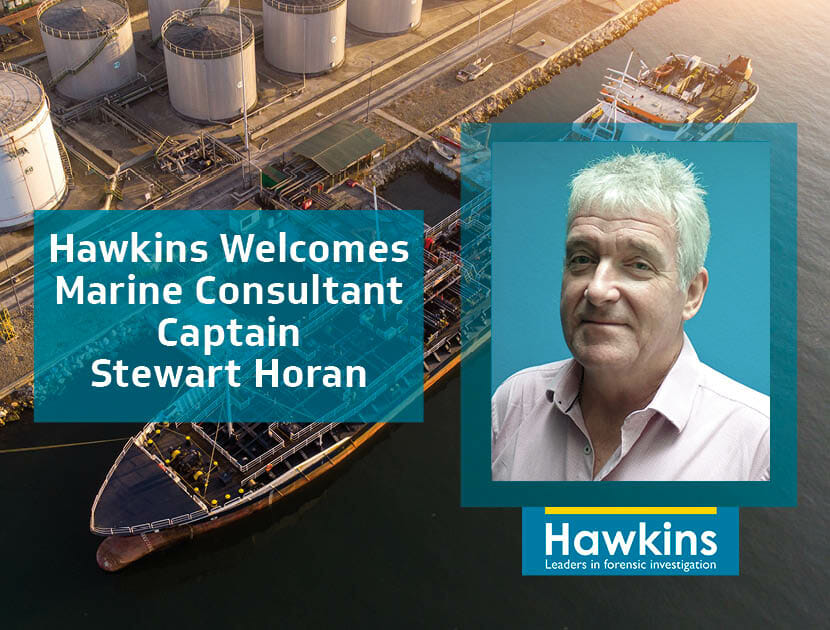
We are delighted to welcome Captain Stewart Horan, who will be joining our Marine team in our Singapore Office. With a background as a port captain and a maritime lawyer, Stewart provides the team with additional capabilities in investigating both onshore and offshore incidents.
Marine Series – Understanding Soybeans & Agricultural Cargo Claims
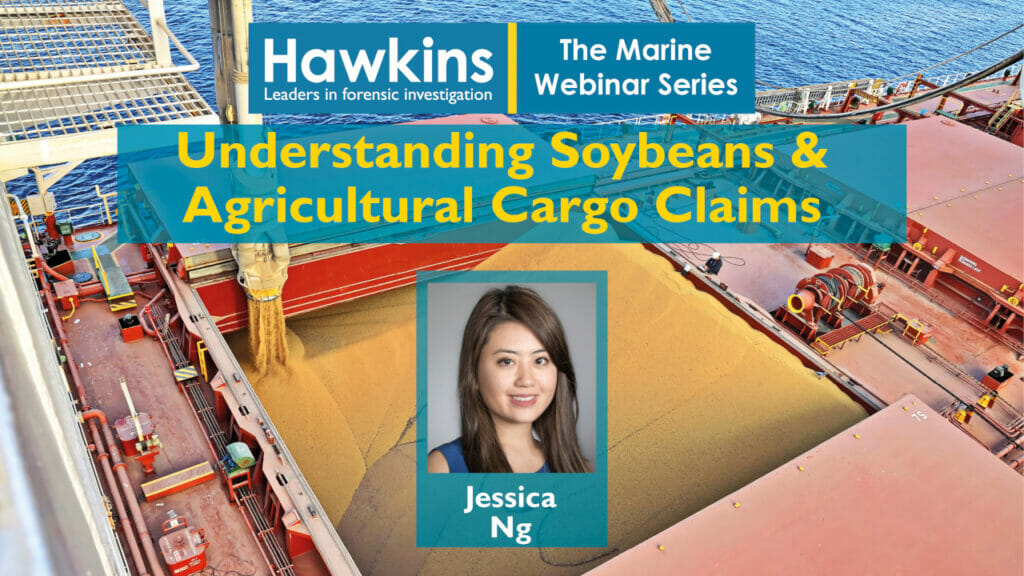
An overview of the common causes of damage in agricultural cargoes and ways to reduce the likelihood of occurrence.
Marine Series – The Art Of Remote Inspection
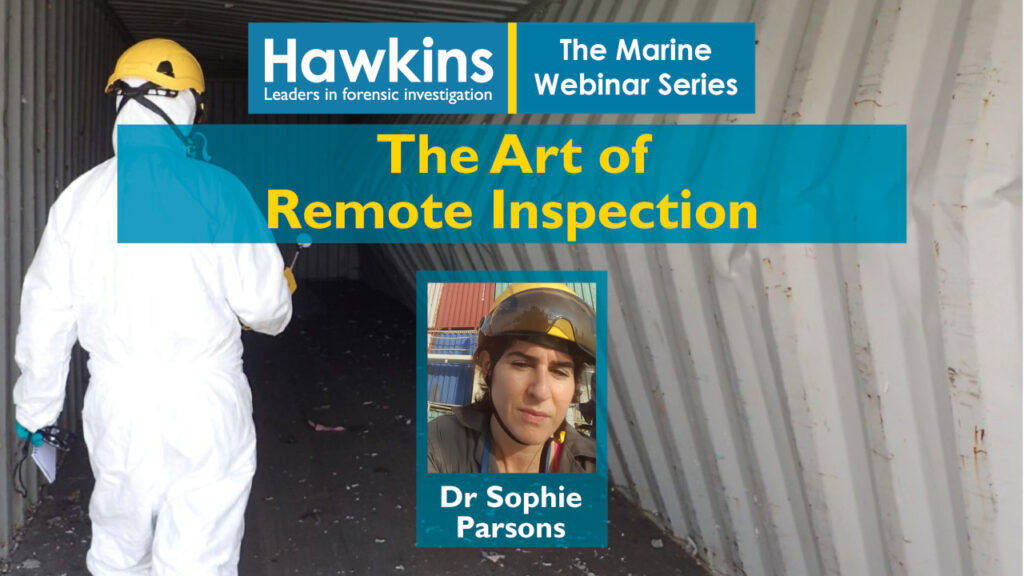
The impact of the pandemic on the manner in which marine experts conduct their investigations on behalf of lawyers, P&I, insurers and various other parties.
Marine Series – Container Ships: Take Two
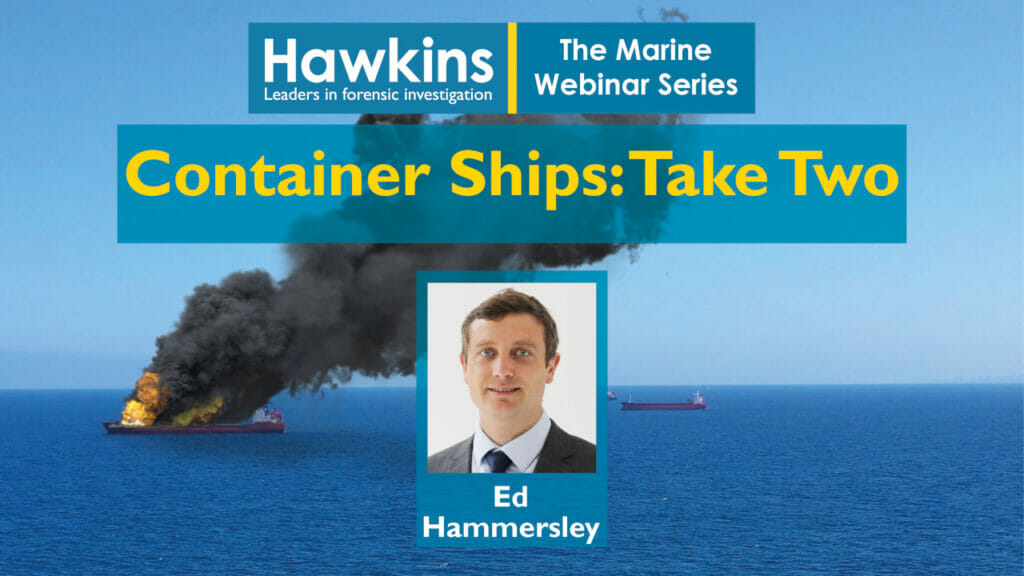
In this webinar, Ed explains further causes of fires and explosions on containerships (other than self heating), and how to investigate them.
Marine Series – The Dangers Of Carrying Black Gold: An Introduction To The Hazards Of Shipping Coal
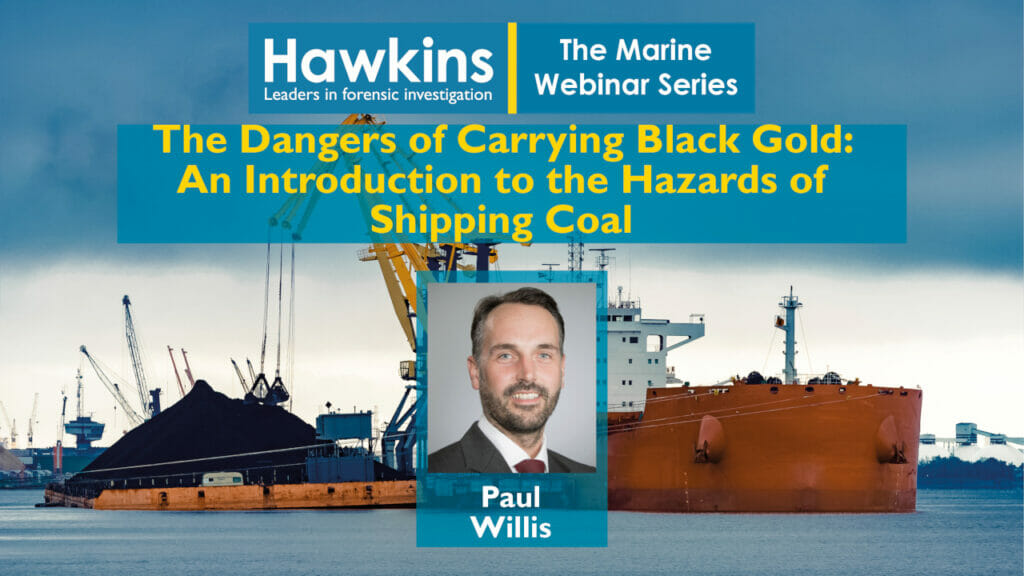
An introduction to the common issues associated with transporting coal in bulk, including self-heating and the liberation of flammable methane gas.
Marine Series – The Science of Cargo Self-Heating Reactions Within Shipping Containers
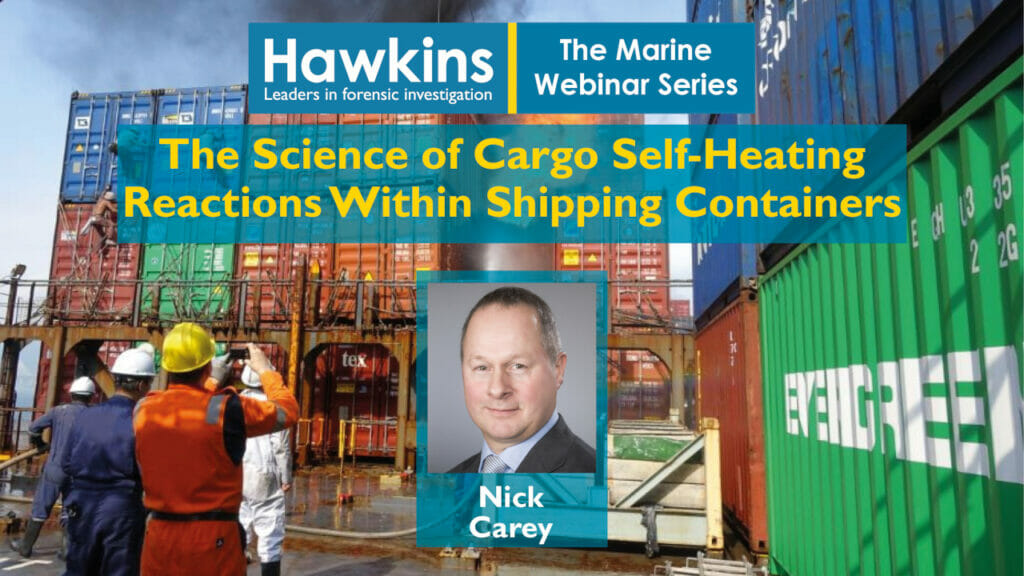
An overview of self-heating reactions within cargos which are transported in shipping containers and the related misdeclaration of cargo issues.
Reigate Series – Safe Mode: Multi-Modal Transporting of Dangerous Goods
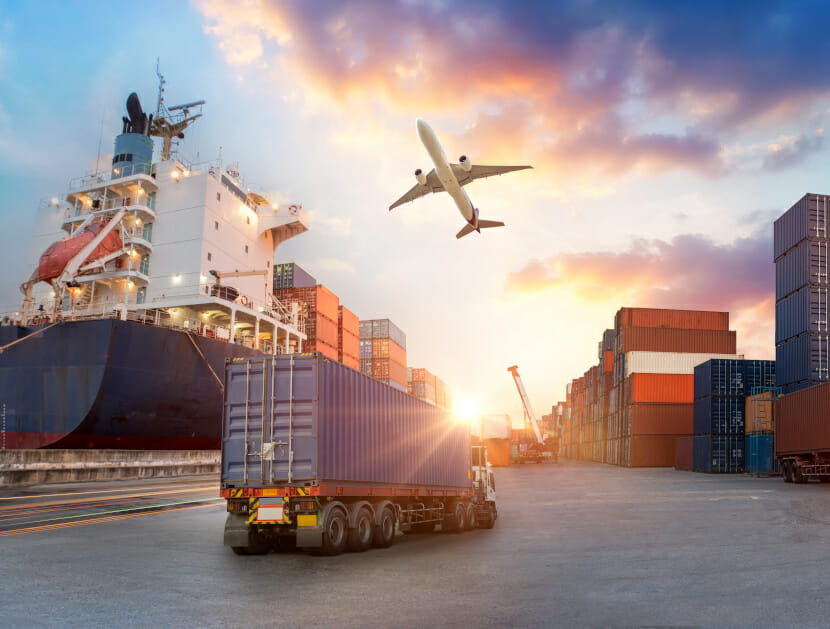
Webinar: A synopsis of the regulations for transporting dangerous goods by different modes including by ship and road.
Nico Zurcher
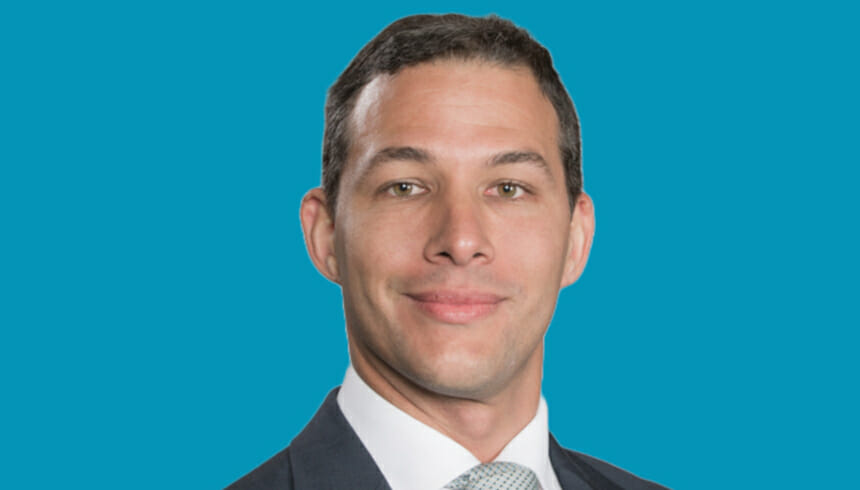
Prior to becoming an investigator, Nico worked in a international environmental consultancy where he was involved in a number of major government marine projects in Hong Kong, as well as oil and gas, and mining projects around Asia. In 2011 he joined HFS-Asia in Hong Kong, where he worked as a fire investigator and consulting scientist. In 2015, Nico moved to London where he joined Hawkins to bolster our growing International and Shipping Incidents team. He continued investigating a broad range of land-based and marine incidents, both in the UK and internationally. He was also a member of our contamination team, taking on cases in the UK and Europe. Hawkins acquired HFS-Asia in 2016 and in 2020 Nico returned to Hong Kong to head the office he helped to build several years earlier. Nico has investigated several fires in large industrial plants, as well as in commercial and residential premises. On the marine side, he has investigated major fires on container and general cargo vessels. He has worked on numerous cases of bulk cargo spoilage, involving grains, oil seeds and seedcake. Nico has also worked on cases involving the carriage and storage of mixed chemical cargoes, and the contamination of […]